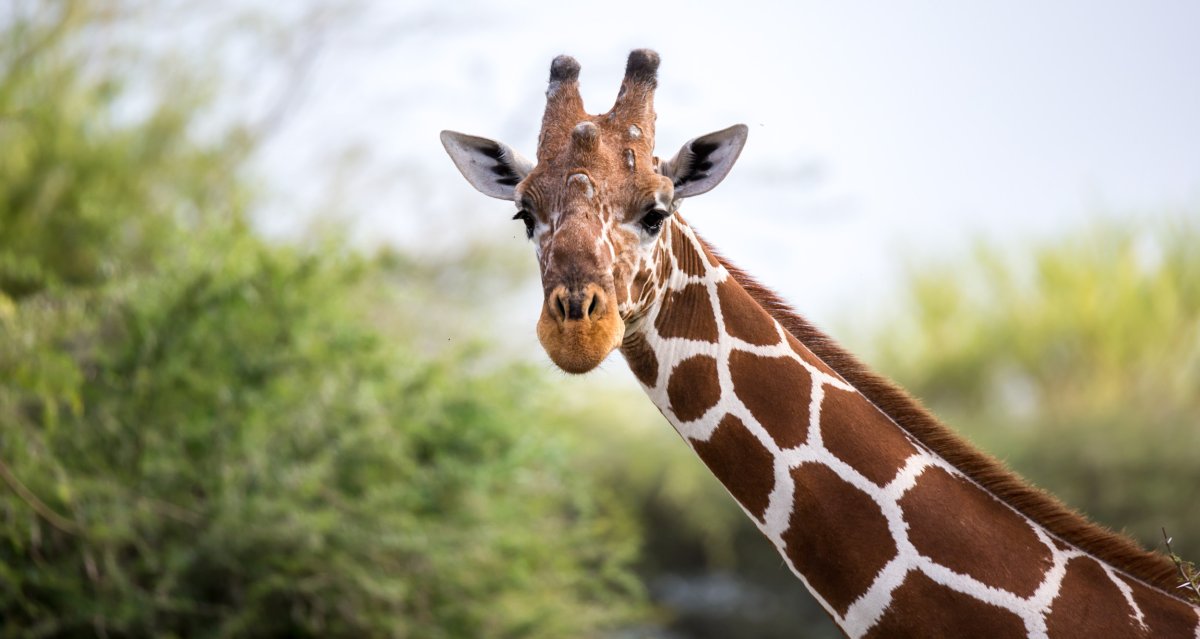Animals of all shapes and sizes are known to get a little freaky during eclipses.
When the last eclipse passed over the skies of the U.S., giraffes were seen to start galloping, Galápagos tortoises started to mate, and gorillas acted like night had just fallen, getting ready to sleep.
So, how will your beloved pets behave during the upcoming April 8 total solar eclipse?
Scientific studies have found that three-quarters of all zoo animals "exhibited a behavioral response to the eclipse," according to a 2020 paper in the journal Animals. Most of these reactions resembled the usual nightfall behaviors of the animals, with birds and insects entering into nocturnal patterns when the sun disappeared behind the moon's shadow in 2017. Other studies found that fireflies started flashing, and nocturnal voles came out of their dens.

Some behavior resembled anxiety, or more unusual things.
Your Pets Might Get Anxious
"Surprisingly, there are fewer studies investigating how animals react to solar eclipses than one might expect," Austin M. Garner, an assistant biology professor at Syracuse University, told Newsweek. "Total solar eclipses in a particular region are relatively infrequent and have a short duration, meaning that studies happen infrequently and must be carefully executed.
"Additionally, studying animal behavior in large regions and at large scales is notoriously difficult to achieve. There are, however, a couple of studies that describe accounts of domestic dog and cat behavior during solar eclipses."
Research has found that dogs have been seen to fall silent during an eclipse, an apparent anxiety behavior, while horses have clustered together and shaken their heads and tails.
"Based on previous accounts, it appears that dogs are more likely to react to the eclipse than cats. Dogs may become silent as totality nears, but show excitement after the eclipse is over or they may show nervous or anxious behaviors during the event. Some dogs, however, may not react at all. Most accounts report that cats seemed relatively unfazed by the event. In any case, any behavioral changes in our pets are likely to be short-lived with no obvious detrimental effects on their health," Garner said.
Some species of birds, such as crows and gulls, were seen to stop flying and stay silent and still.
"Five of the 17 focal taxa displayed behaviors in addition to, or in place of, evening routine behaviors that were interpreted by both researchers and zookeepers as apparently anxious. The most extreme expressions of apparent anxiety were observed in the giraffes, flamingos, and baboons," the 2020 paper revealed.
"Throughout totality, giraffes exhibited several stereotypic behaviors indicative of anxiety, including swaying, group galloping, and the formation of tight huddles. Indeed, one male individual continued to display anomalous behaviors for more than an hour after the eclipse ended. Both baboons and flamingos also clustered together during the eclipse, despite the propensity for both populations to normally divide into subgroups."

However, these behaviors may also be something the animal may have done anyway, but that simply had gone unnoticed on a normal day
Additionally, this doesn't necessarily mean that your dogs, cats or other pets will behave anxiously, as domestic pets are much more used to artificial light. Your pets might end up not reacting at all.
"In the annual eclipse, people closer to the path were more likely to think that their dogs had a reaction. What was interesting was that 1/2 thought that their dogs became quieter, and the other 1/2 said that they started howling or barking," Adam Hartstone-Rose, a researcher at North Carolina State University and co-author of the 2020 paper, told Newsweek.
Your Animals May Act Like It's Bedtime
If you have a pet bird, the eclipse may trigger it to behave like the sun has just gone down, meaning that it's time for it to go to sleep.
"We saw that wild birds decreased their activity in the air already when light levels started to slowly decrease. We hypothesized that they might interpret this slow decrease in light as an approaching storm or similar. If this true I guess the same could be true for some pets, if they are outside during the eclipse and also used to how light levels change outdoors in different weather situations. I would expect this more from animals such as horses that spend a lot of time outdoors, while I would very much doubt that an indoor cat would realize," Cecilia Nilsson, a behavioral ecologist at Lund University, told Newsweek.
However, again, birds or other pets that live indoors may have different reactions, and more studies are needed to fully understand how they might be affected by the eclipse. Scientists hope to use the upcoming eclipse as an opportunity to study how migrating birds are affected by sudden darkness.

How to Keep Your Pets Safe During the Eclipse
If anything is likely to stress out your pet during the eclipse, it's being around a crowd of excited people gathered to watch the phenomenon, experts warned. Therefore, it's safest to keep your pets indoors and away from large groups of people.
"Lucky for us, they usually will not stare up into the sky simply out of curiosity," Kristina Paradowski, a clinical assistant professor at the Texas A&M School of Veterinary Medicine and Biomedical Sciences, said in a statement. "They may see us looking into the sky and follow our gaze to see what we are looking at, so if you have a pet with you, try not to look too long."
"I would not recommend taking pets to any eclipse viewing events," Paradowski said. "These will be very crowded and may increase anxiety even further. This is especially true if your pet is not used to large events, other pets or people.
"Cats should also be kept indoors during the event because of increased traffic on the roads, which increases the risk of accidents and trauma," Paradowski said. "Keeping cats indoors will limit their exposure to other cats as well since some cats express anxiety through aggression, increasing the chance of fighting.
Do you have a tip on a science story that Newsweek should be covering? Do you have a question about eclipses? Let us know via science@newsweek.com.
Uncommon Knowledge
Newsweek is committed to challenging conventional wisdom and finding connections in the search for common ground.
Newsweek is committed to challenging conventional wisdom and finding connections in the search for common ground.
About the writer
Jess Thomson is a Newsweek Science Reporter based in London UK. Her focus is reporting on science, technology and healthcare. ... Read more
To read how Newsweek uses AI as a newsroom tool, Click here.






